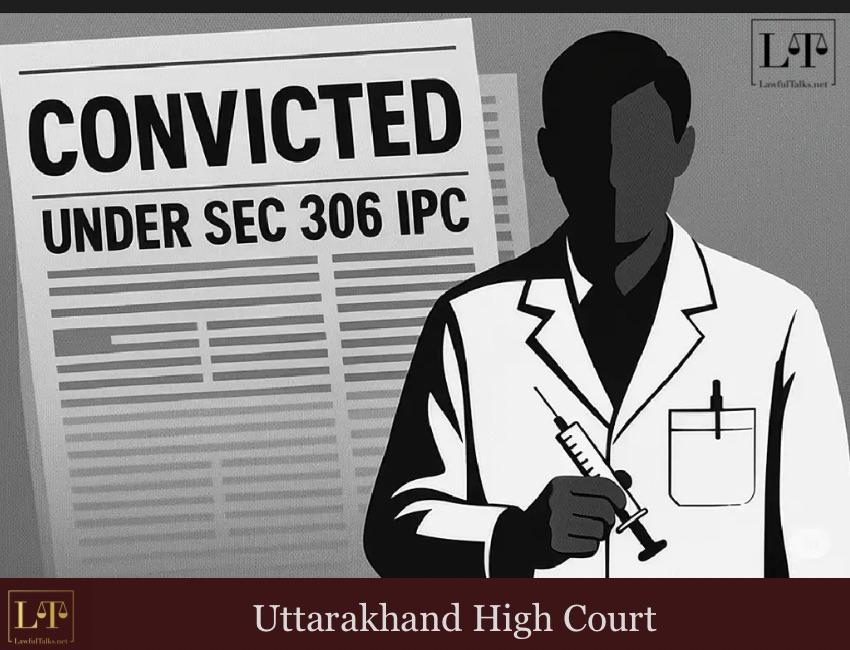Allahabad HC Sets Aside Afzal Ansari's Conviction, Allows Him to Continue as MP

The Uttarakhand High Court, presided over by Justice Ravindra Maithani, recently stayed both the conviction and the execution of a sentence of a vaccine scientist found guilty by a trial court for allegedly abetting his wife’s suicide. The Court noted that suspending the conviction was in the interest of greater public health, stressing the appellant’s vital role in vaccine research and development.

Acknowledging that the stay on conviction serves the larger public interest, the bench noted,“What is stated in the instant case is that the appellant is a Scientist, who is into the research work of vaccine development, and due to his conviction, he is not allowed to join his duties, which, otherwise, is also greater issue of public health and national interest.”
Facts:
The Counsel for the Appellant submitted that he is a distinguished scientist with a PhD in Biotechnology from the Indian Institute of Technology, Kharagpur. He is directly involved in vaccine research and development which is of critical importance to public health and national interest.
But due to his conviction, he added, the appellant has been restrained from further working on the vaccine programme.
Countering this argument, Counsel for the State submitted that in the suicide note, the deceased has recorded that the appellant should be held responsible and accountable for her death.
The appellant was initially charged under Section 304-B of the Indian Penal Code (IPC) and Sections 3 and 4 of the Dowry Prohibition Act, pertaining to the alleged dowry death of his wife. While he was acquitted of those charges, he was convicted under Section 306 IPC for abetment of suicide.
The High Court had earlier granted him bail and stayed the execution of sentence pending appeal. Subsequently, he filed another interim application seeking suspension of the conviction, arguing that his conviction had hindered his ability to continue his crucial work in vaccine research.
In its ruling, the court reiterated the principles on suspension of a conviction and sentence. It referenced the case of Rama Narang v. Ramesh Narang & Ors. (1995), where the Supreme Court held that it may suspend a conviction if it believes that doing so would prevent the convicted individual from facing disqualifications imposed by other statutes, as the repercussions of such disqualifications could be irreversible.
The court also cited the case of Navjot Singh Sidhu v. State of Punjab & Anr. (2007), which affirmed that a stay on conviction could be granted in exceptional circumstances based on the unique facts of a case.
Accordingly, in this particular instance, the court placed significant emphasis on the appellant's involvement in vaccine research and development, which it stated was deemed crucial not only for public health but also for national interest.
Consequently, the court ordered that "the order of conviction as well as execution of sentence, appealed against, shall remain suspended during the pendency of this appeal.”
Akash Yadav v. State of Uttarakhand(IA No. 02 of 2025 in Criminal Appeal No. 44 of 2025)

Anam Sayyed
4th Year, Law Student
Latest Posts
Categories
- International News 19 Posts
- Supreme Court 390 Posts
- High Courts 383 Posts



















































































































































































































































































































































































































































































































































































































































































































































































































